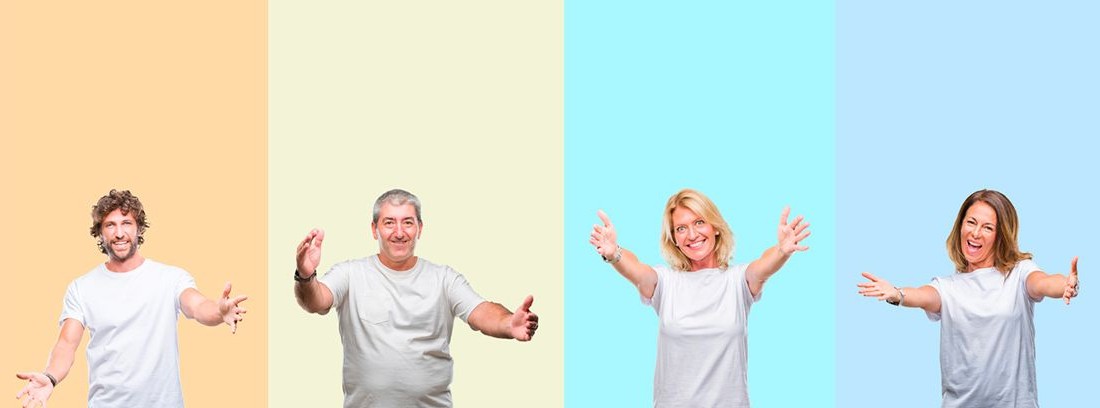Hugs improve health

Hugs improve health. This was witnessed a few years ago by an American hospital after the birth of two twins in very critical condition. After the first days in the incubator, one of them began to recover while the other remained in critical condition. A nurse placed both babies in the same incubator and the healthier of the two, spontaneously hugged the other. Surprisingly, the other baby's heart rate and temperature normalized and he survived.
Several media outlets echoed this news, which they called "the rescue hug”, Which resulted in an investigation by the University of Massachusetts Memorial and a change in hospital regulations regarding infection prevention policy.
What happens in the body when we hug?
The corpuscles of (located in the skin) receive the touch signal and send it to the cerebral cortex. Also the mechanoreceptors, especially numerous in the hands and lips, receive stimuli such as temperature or pressure, which is then brain encoded and assimilated as a caress, pinch, tickle, hugs…
According to research, when we hug a person:
- We secrete oxytocin and endorphins that reduce the levels of cortisol and adrenaline, (stress hormones) and help us feel more relaxed.
- We release serotonin and dopamine that contribute to well-being and calm.
- We activate the limbic system in charge of emotional regulation, this contributes to reinforcing affective bonds such as trust or attachment.
How does it influence the development of the human being?
Hugs and expression of affection have a lot to do with our development as human beings:
- In the kids, hugs and enhance the feeling of At the same time, feeling that there is an adult reference that unconditionally accompanies him allows emotional regulation and cognitive maturation. This contributes to fundamental processes such as the acquisition of language, motor skills, the sense of identity, self-esteem, etc.
- In the Adults hugs are also essential. There are studies that confirm that the number of breakups is higher in couples in which one of the members in the form of hugs or caresses.
Eight hugs a day
There are so many psychophysiological benefits of hugs that some authors have investigated its properties to promote health. , a researcher at the University of Claremont, has even gone so far as to "prescribe" 8 hugs a day as a way to release oxytocin and improve well-being. Between the main benefits of the hugs, we find:
- They reduce the stress and tension.
- They contribute security and protection.
- They promote well-being and Calm down.
- They improve the self esteem, empowerment.
- Regulate mood and level of Energy.
- Stimulates the sensitive ability.
- They reinforce the processes of memory and learning. Dopamine increases good mood and motivation. Emotions also settle memories.
- At a physiological level it reduces blood pressure and slows down breathing.
- There are studies that refer to improvements in headaches, insomnia, appetite regulation, chronic pain, slowing of aging (by the hormone DHEA) and reinforcement of the immune system.
- They enhance interpersonal relationships and feelings of connection
What is hug therapy?
According to the creative therapist of the, the hug is not only good, but necessary for our bio-psycho-social well-being. In hug therapy it is important to receive hugs, give them and ask for it, therefore it trains people to hug better:
Specialist in Clinical Psychology
- Accompany with breathing exercises or even visualizations that bring balance.
-
Establish eye contact with the other person as it involves emotionally.
- In the child, the hug enhances his security. Feeling that there is an adult referent who unconditionally accompanies him allows emotional regulation and cognitive maturation.
- According to some studies, the number of breakups is higher in couples in which one of the members does not express the effect in the form of hugs or caresses.
- From hugotherapy the importance of receiving hugs, giving or asking for them is valued.
(Updated at Apr 14 / 2024)